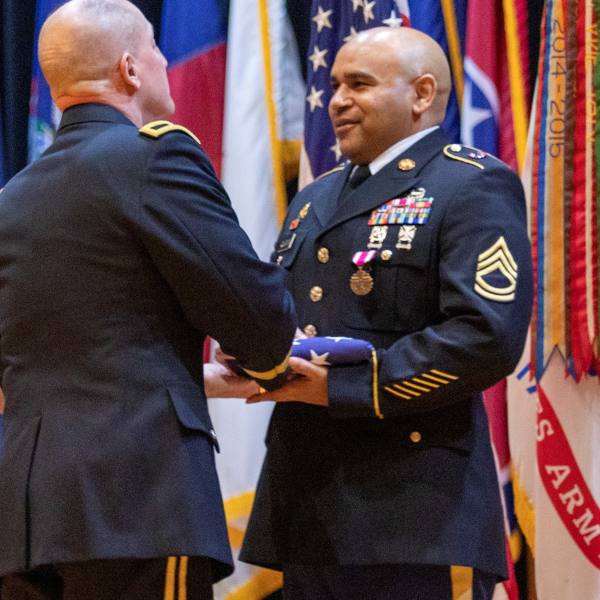When life happens: Navigating a retirement with confidence
By DoD Office of Financial Readiness
It’s a familiar story: Soldiers retire from the Army and begin new lives as civilians, only to find that the transition isn’t quite what they expected. It’s an exciting time full of possibilities, but as service members try to start fresh, they can also face new challenges.
The Veterans’ Employment and Training Service (VETS) notes that approximately 200,000 men and women leave military service every year. All of them have different needs and challenges, hopes and dreams, fears and strengths.
Transition
Retired Soldiers are often solution-focused and have leadership experience and global outlooks that are sought after by employers. However, after decades in the military — and frequently combat — new retirees can feel misunderstood in civilian life.
Some new veterans may feel uncomfortable sitting in cubicles that leave their backs vulnerable, for example, or they could be easily startled by loud noises, reactions civilians might not understand. According to Soldier for Life, in an article titled, VA supports easing transition from active duty, many Soldiers also experience anxiety, trouble sleeping, and difficulty concentrating after retirement. Other challenges include adjusting to a different pace of life and working in less structured environments.
Fortunately, many programs from the Army and the Department of Defense (DoD) and Veterans Affairs (VA) can help Soldiers start new lives with hopeful outlooks and firm financial footings. The VA’s Solid Start program is designed to support new veterans as they integrate back into civilian life, for instance, while the Army provides guidance on the retirement process, pay, and benefits.
Financial Changes
After serving, say, 20 years, you’re probably accustomed to regular paychecks, housing and cost-of-living allowances (BAH and COLA), and more. It’s normal to be anxious when these benefits end, especially if a family member has health problems, if the job market is tough, if you have children in college, or if you’re facing other unexpected expenses. Luckily, the transition to civilian life doesn’t have to be overwhelming, especially with your retirement package. Retired pay can help Soldiers meet financial obligations like mortgage payments. TRICARE can mean health care savings. You can continue saving money on groceries, tech, household goods, and more at the base commissary and the Exchange.
That said, one of the best ways you can prepare for retirement is by building an emergency fund before transitioning out of the Army. Saving several months’ worth of expenses can protect your family. It gives you flexibility if that first job doesn’t work out or if you simply want to take some time off. Remember, if your retirement doesn’t go as smoothly as you planned, Army Emergency Relief (AER), offers benefits to Retired Soldiers and their Families.
Job Training
If your first post-Army career isn’t what you expected, consider using your Post-9/11 GI Bill benefits to go back to school. That happens more often than many realize. Many retirees discover that their dream jobs actually have nothing to do with their Army careers. Sometimes, a fresh start can be exciting.
The Army prepares Soldiers for their new lives as much as possible through the Transition Assistance Program (TAP). TAP offers courses and workshops on job searching, resume building, networking, identifying occupational interests, and more. It helps Soldiers choose whether they want to go to school, start a business, or begin a new career. Even if your first choice doesn’t work out, you can use your new skills to plan your next move.
The Department of Defense (DoD) SkillBridge Program also offers civilian industry training, apprenticeships, or internships during a service member’s final 180 days of service.
More Benefits
Make sure you’re aware of other benefits you may qualify for. For example, the VA offers pensions for wartime veterans who meet certain age and disability requirements on top of tax-free veterans disability compensation. These benefits can give significant financial relief to your family while you decide your next steps.
Read more about the expectations and realities of retirement in this article from the DoD Office of Financial Readiness (FINRED). If you need help developing a retirement spending plan, check with a trusted personal financial manager or counselor. Reach out to your nearest installation and make an appointment with an expert.
As you reach new milestones and complete your financial readiness training, look to FINRED and your service for trusted additional resources. You can follow @DoDFINRED on LinkedIn, Facebook, X, Instagram, and YouTube, and download the no-cost DoD financial literacy app, Sen$e, for financial tips on the go. Find it in the Google Play and iOS app stores.

